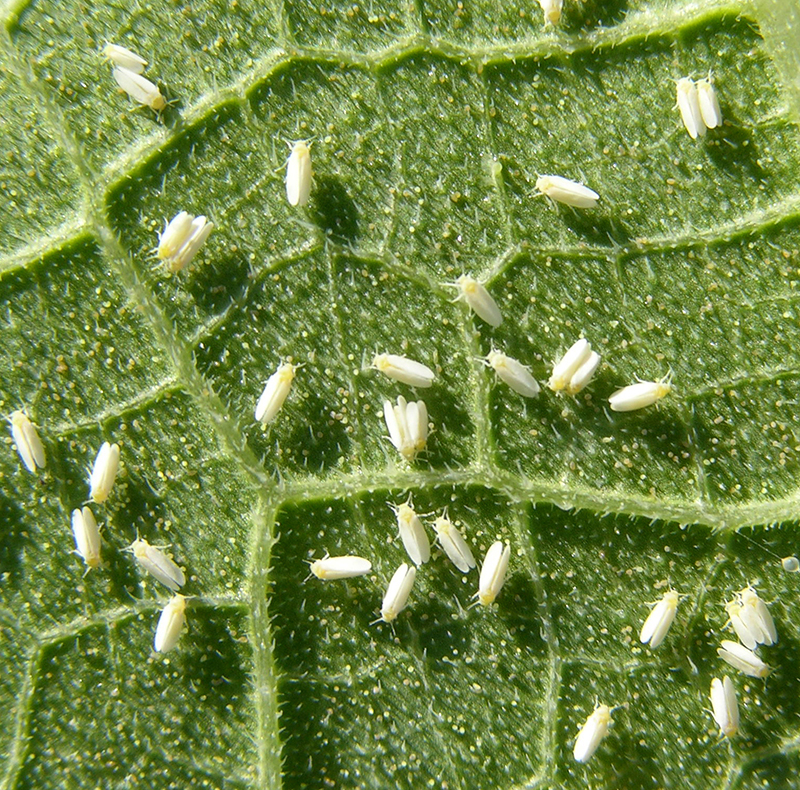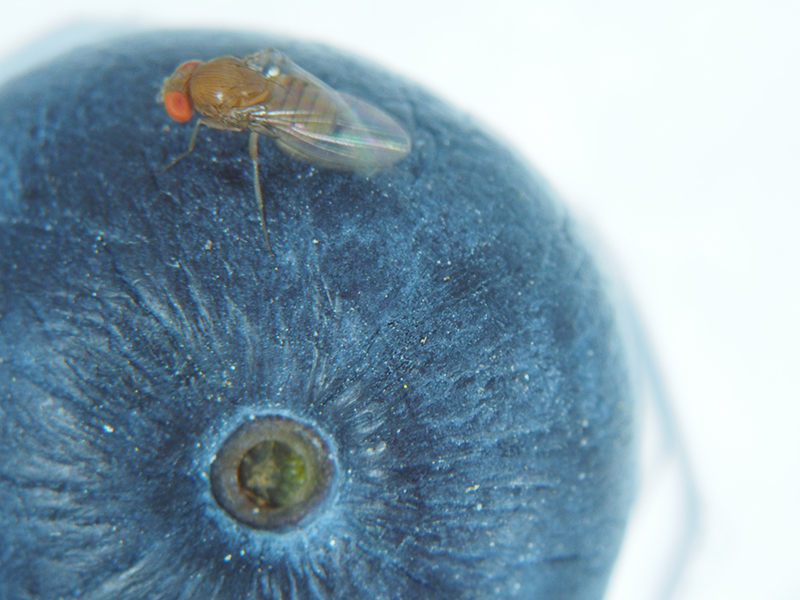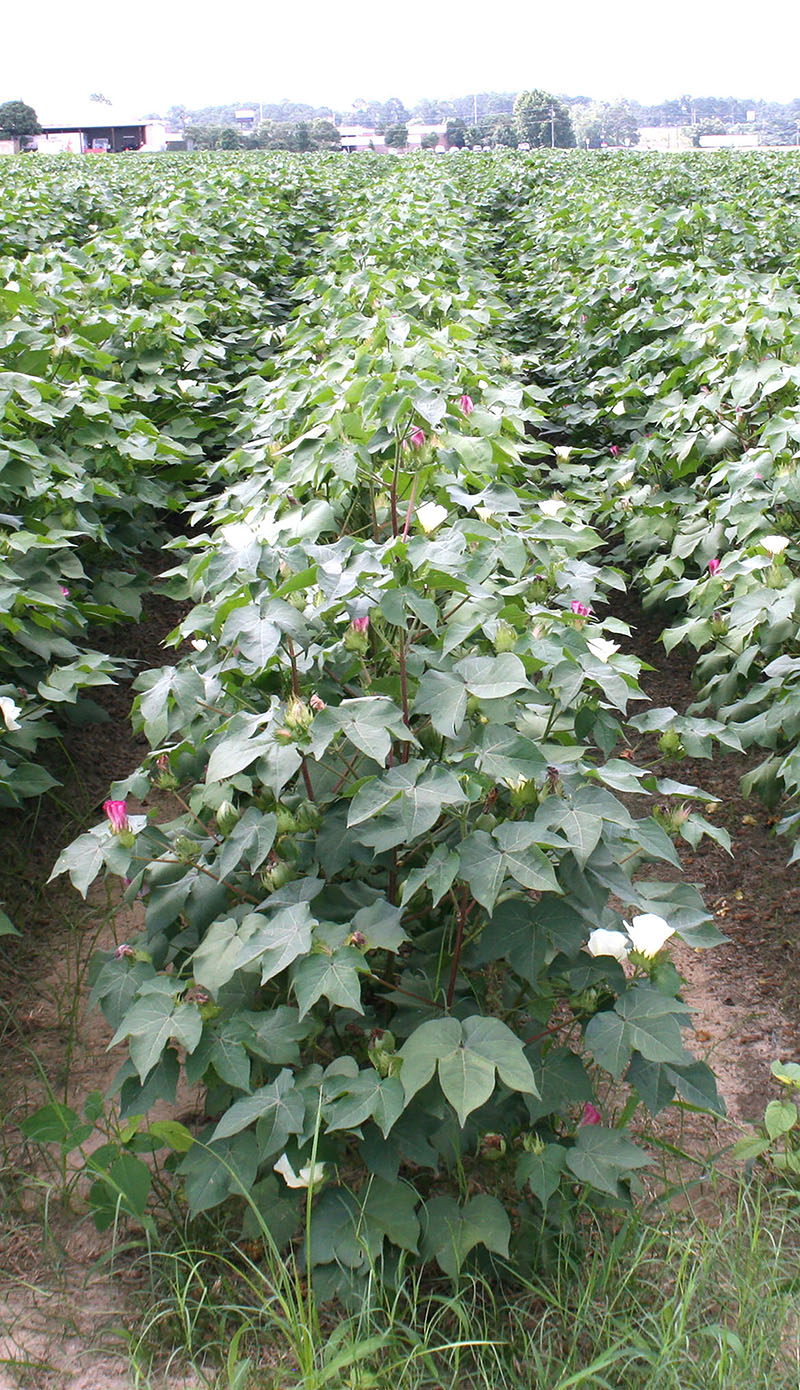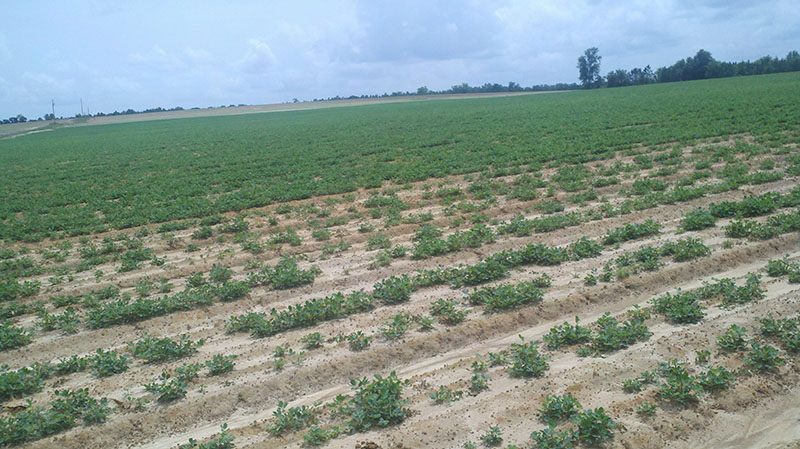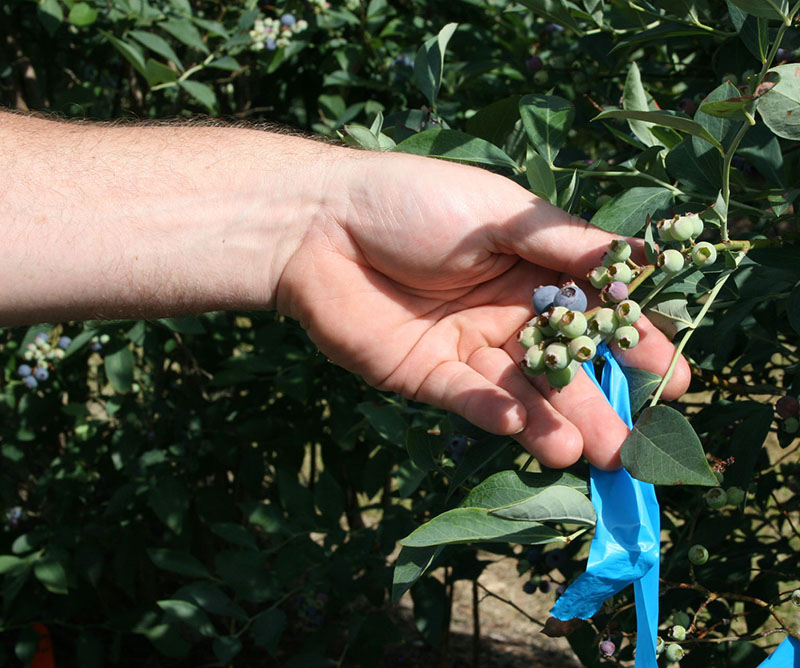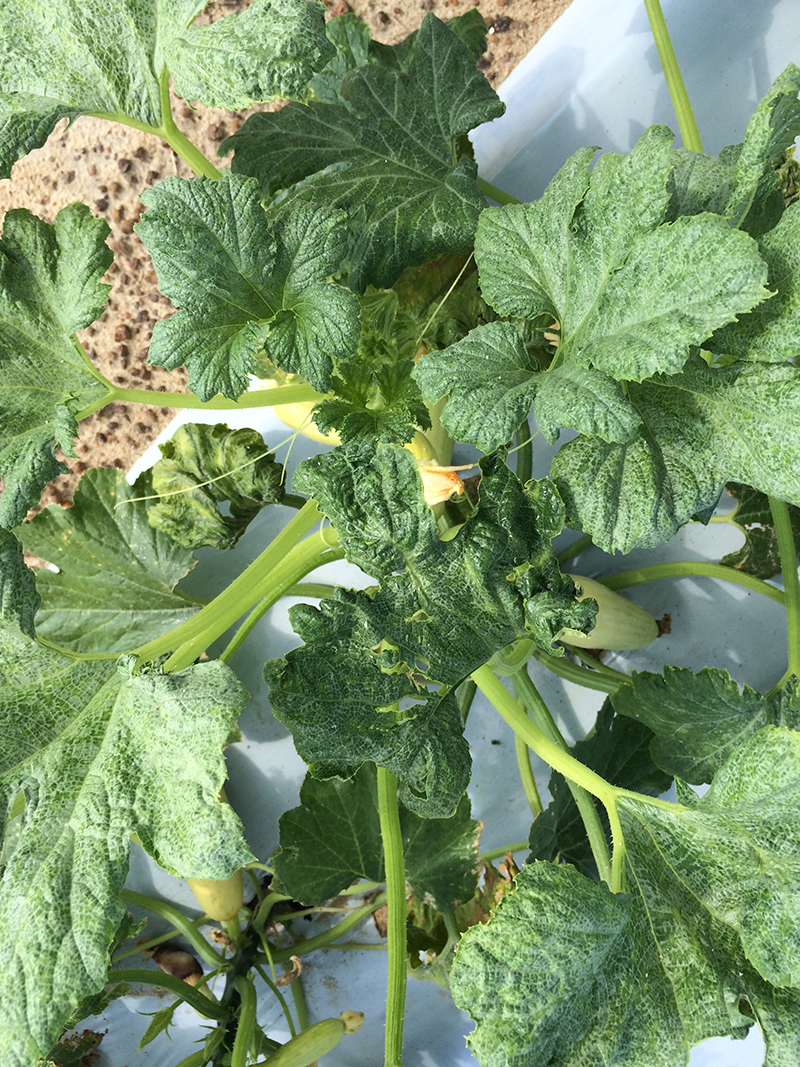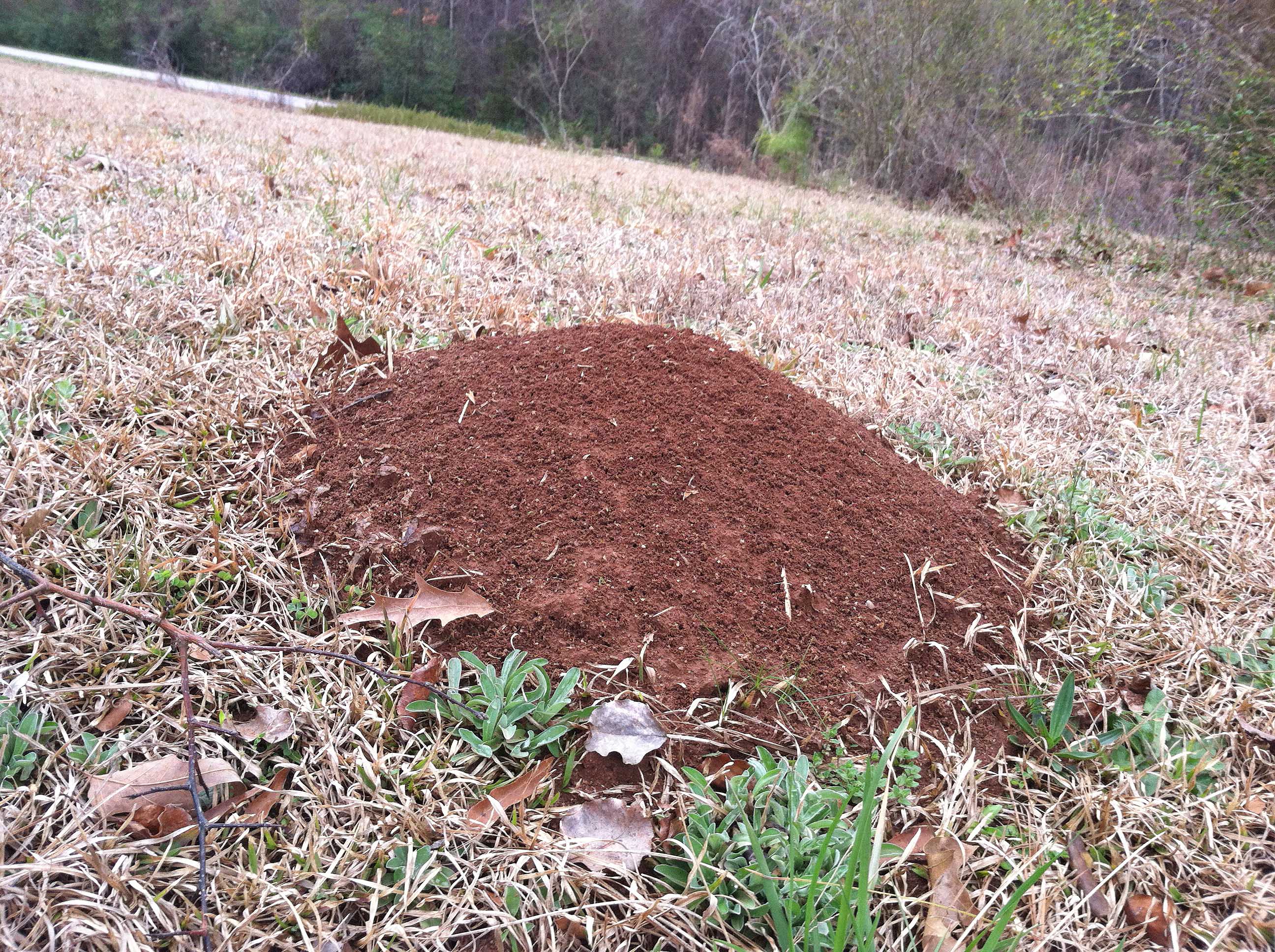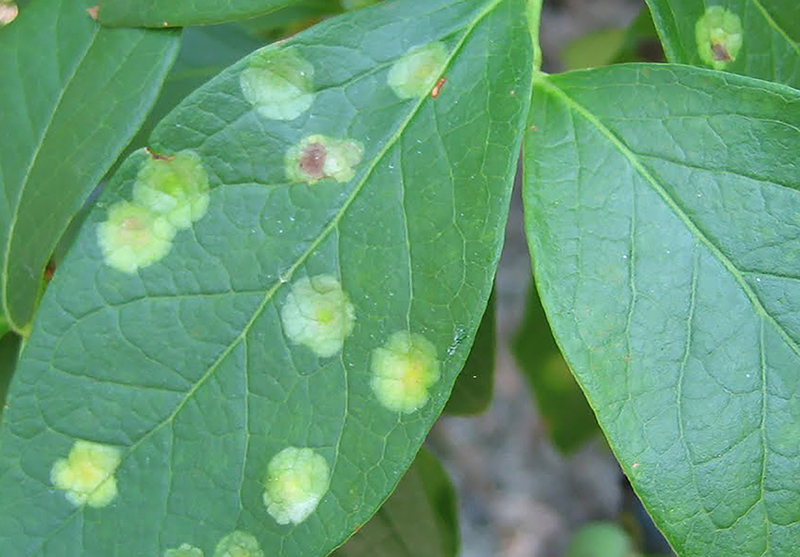 CAES News
CAES News
Blueberry Disease
The key to managing Exobasidium leaf and fruit spot disease in blueberries, which makes the fruit unmarketable, is one application of lime sulfur approximately two weeks prior to bud break, according to Jonathan Oliver, University of Georgia Cooperative Extension fruit pathologist.


